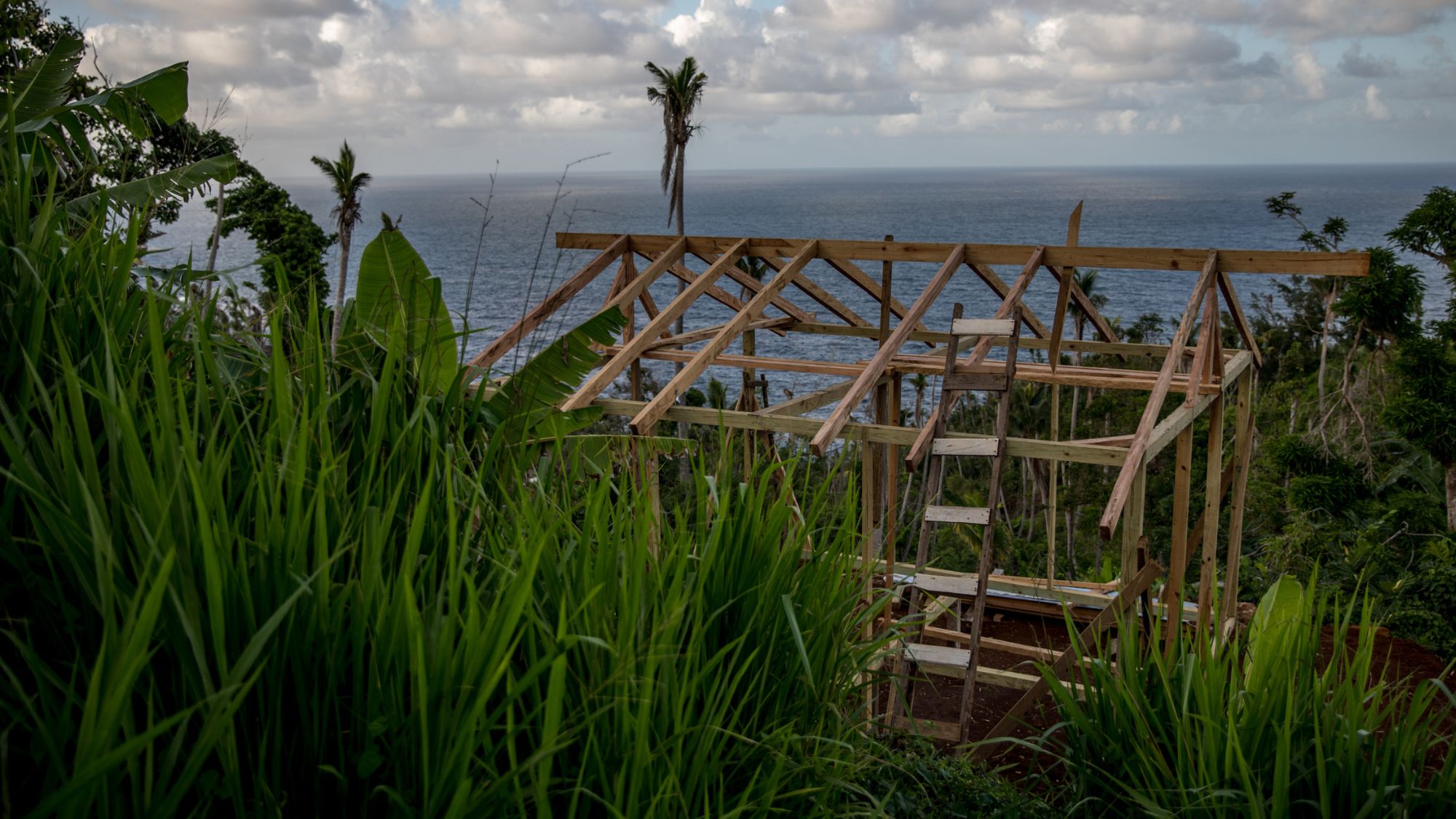Dominica's journey to climate resilience
The island nation is hoping to use Cop28 as a unique opportunity for climate assistance

A free daily email with the biggest news stories of the day – and the best features from TheWeek.com
You are now subscribed
Your newsletter sign-up was successful
As global leaders enter the first full week of Cop28, a small Caribbean island is determined to become the world's first climate-proof country.
The developing state of Dominica is "one of the most disaster-vulnerable countries on Earth", said the BBC, making it "disproportionately impacted by climate change". If the world fails to meet its emission-slashing targets, Dominica risks destruction.
Bearing this "rapidly closing window" in mind, Cop28 is a chance for Prime Minister Roosevelt Skerrit to highlight the unique set of challenges faced by the island, and to push for small-state financing.
Dominica's "mountainous terrain and steep slopes" means that "most of the country is prone to either landslides or flooding" and climate change is an "existential threat", said Emily Wilkinson, director of the Resilient and Sustainable Islands Initiative at the Overseas Development Institute, for The Conversation.
Skerrit "set the bold ambition of becoming the first climate-resilient nation" in the wake of Hurricane Maria in 2017, which caused "the kind of devastation which is unthinkable to larger countries", said Wilkinson.
For Dominica, this means "being able to handle more intense hurricanes and more frequent flooding", with its targets and roadmap combining "everything from building design to nature-based power sources and climate-resilient crop systems".
The island's early warning system is perhaps the most important, helping Dominicans to "make what can be life-saving preparations, such as moving to higher ground", the BBC reported.
Leaning on traditions, Dominica has utilised an age-old practice of "conch-shell blowing", traditionally for notifying people that there's fresh fish for sale, to grab attention "ahead of urgent news". This is mixed with modern technologies, as the island has established an "emergency response chat group" with disaster officials, who then disseminate warnings among the community.
"Home-grown solutions", including "sugarcane waste to create biofuel" and "coral reef baskets to protect coastlines", are also useful for Dominica, said the sustainability site Corporate Knights.
The island is hoping Cop28 will be a chance to lobby for "greater pools of more equitable funding". While financing will be important, so too will be the actions of larger countries, said environmentalist and Dominica resident K. Lisana Dyer, who is among the region's representatives at the conference.
"Countries like Dominica emit less than 1% of greenhouse gases into the atmosphere and yet still we suffer 100%," she told the site. "That's not fair."
The Week
Escape your echo chamber. Get the facts behind the news, plus analysis from multiple perspectives.

Sign up for The Week's Free Newsletters
From our morning news briefing to a weekly Good News Newsletter, get the best of The Week delivered directly to your inbox.
From our morning news briefing to a weekly Good News Newsletter, get the best of The Week delivered directly to your inbox.
A free daily email with the biggest news stories of the day – and the best features from TheWeek.com
Rebekah Evans joined The Week as newsletter editor in 2023 and has written on subjects ranging from Ukraine and Afghanistan to fast fashion and "brotox". She started her career at Reach plc, where she cut her teeth on news, before pivoting into personal finance at the height of the pandemic and cost-of-living crisis. Social affairs is another of her passions, and she has interviewed people from across the world and from all walks of life. Rebekah completed an NCTJ with the Press Association and has written for publications including The Guardian, The Week magazine, the Press Association and local newspapers.
-
 What to know before filing your own taxes for the first time
What to know before filing your own taxes for the first timethe explainer Tackle this financial milestone with confidence
-
 The biggest box office flops of the 21st century
The biggest box office flops of the 21st centuryin depth Unnecessary remakes and turgid, expensive CGI-fests highlight this list of these most notorious box-office losers
-
 What are the best investments for beginners?
What are the best investments for beginners?The Explainer Stocks and ETFs and bonds, oh my
-
 The plan to wall off the ‘Doomsday’ glacier
The plan to wall off the ‘Doomsday’ glacierUnder the Radar Massive barrier could ‘slow the rate of ice loss’ from Thwaites Glacier, whose total collapse would have devastating consequences
-
 Can the UK take any more rain?
Can the UK take any more rain?Today’s Big Question An Atlantic jet stream is ‘stuck’ over British skies, leading to ‘biblical’ downpours and more than 40 consecutive days of rain in some areas
-
 As temperatures rise, US incomes fall
As temperatures rise, US incomes fallUnder the radar Elevated temperatures are capable of affecting the entire economy
-
 The world is entering an ‘era of water bankruptcy’
The world is entering an ‘era of water bankruptcy’The explainer Water might soon be more valuable than gold
-
 Climate change could lead to a reptile ‘sexpocalypse’
Climate change could lead to a reptile ‘sexpocalypse’Under the radar The gender gap has hit the animal kingdom
-
 The former largest iceberg is turning blue. It’s a bad sign.
The former largest iceberg is turning blue. It’s a bad sign.Under the radar It is quickly melting away
-
 How drones detected a deadly threat to Arctic whales
How drones detected a deadly threat to Arctic whalesUnder the radar Monitoring the sea in the air
-
 ‘Jumping genes’: how polar bears are rewiring their DNA to survive the warming Arctic
‘Jumping genes’: how polar bears are rewiring their DNA to survive the warming ArcticUnder the radar The species is adapting to warmer temperatures